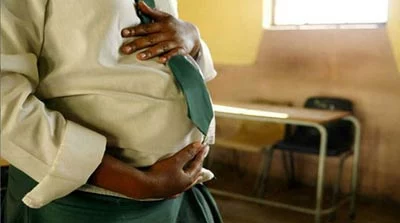Parliament’s portfolio committee on basic education has recommended that the SA Council for Educators (SACE) should ensure that all teaching students and graduated teachers receive the necessary vetting as a tool to prevent the scourge of statutory rape.
This was revealed on Monday during [the sitting of] Parliament’s portfolio committee on Basic Education for the consideration and adoption of the committee’s draft report on the statutory rape of young girls.
The parliamentary session took place virtually and was chaired by committee chairperson and ANC MP Joy Maimela.
National Assembly orders
On July 22, parliament’s National Assembly took a resolution to mandate the portfolio committee on women, youth and persons with disabilities to confer with other parliamentary committees in order to receive submissions on the statutory rape on young girls, review legislation if necessary and recommend amendments to enforce mandatory reporting of statutory rape by teachers and nurses, and report to the National Assembly by November 30.
The portfolio committee on basic education participated in the statutory rape of young girls inquiry and stakeholder engagement hosted by the portfolio committee on women, youth and persons with disabilities. The inquiry looked at the prevalence of statutory rape.
The public hearings took place in Gauteng and Eastern Cape between October 31 and November 3.
Feedback
During Monday’s virtual session, the portfolio committee on basic education presented a recommendations report on the statutory rape inquiry based on its November 11 session in parliament’s National Council Of Provinces (NCOP).
The basic education portfolio committee recommended that SACE to ensure all teaching students and graduated teachers receive the necessary vetting and ensure vetting was triangulated against the national child protection register and national register for sex offenders. In collaboration with the Department of Basic Education (DBE), SACE needed to be adequately resourced and staffed to strengthen its vetting capacity.
It was also recommended that the Department of Basic Education address challenges with access to the relevant sexual offence registers to assist with vetting processes and minimise delays in vetting.
It starts with capacity building
In addition, the committee recommended that there should be capacity building and funding.
“Increased investment in social worker training, digital tools and victim-support infrastructure is vital. This requires not only national budget reallocations but also stronger provincial accountability mechanisms.
“The DBE should ensure systems are developed and strengthened to expedite processes for removing guilty offenders from the system. The system should have relevant statistics and a well-maintained database of convicted educators,” read the recommendations report.
The committee further recommended that SACE should consider re-vetting educators in the system over a shorter period than the current five years being considered.
The committee recommended that there should be mandatory annual training for teachers. Every educator [teacher] must complete a four-hour accredited module annually.”
The committee adopted the recommendations as presented.



